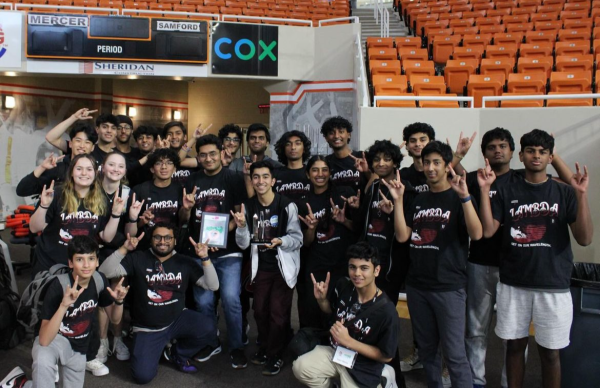Why Facebook’s Metaverse Will Fail

A promotional image from Meta showing users interacting in one of their virtual worlds, courtesy of Meta Platforms, Inc. (2022)
Recently, the company Meta, previously known as Facebook, has been aggressively pushing their new “Metaverse:” a virtual reality simulation where users play games and perform activities in a digital amusement park.
With an operating loss of 18 billion dollars in the last year, the “reality labs” segment of Meta is having a hard time proving its worth. Even worse, these losses also came with an operating cost of over four billion dollars. It’s clear that they’re looking to transition from the social media company that was Facebook into a new brand, with virtual reality being their main product.
Inventors, though, are worried about whether this will be a sustainable growth driver for the company. The metaverse is unproven, and early signs such as earning and investor confidence seem to spell trouble. Here’s why I think the metaverse, even with all its innovation, will probably fail.
The first big issue for the metaverse is its lack of user interest, and even Meta knows it. Their internal documents revealed that their core Metaverse product, Horizon Worlds, is gaining little traction.
The way Horizon Worlds works is that creators on the app create virtual worlds that other can users and interact with. However, only 9% of these virtual worlds are visited by more than 50 people with most having absolutely no visitors.
There’s also a serious lack of these worlds, with the document revealing that less than 1% of users are actually building them. The problem though, gets worse when people can’t even find fun things to do within the few worlds that exist.
A survey of 514 Horizon Worlds users revealed that people had a hard time finding worlds they liked. Users are spending a lot of time simply searching around for fun things to do. Since users are spending time looking for worlds, they’re spending less time actually playing them.
Another problem arises when you consider the main way people experience the metaverse. Meta’s flagship virtual reality headset, the Oculus Quest 2, has had declining sales ever since its release. In fact, more than 50% of headsets aren’t even used after 6 months of purchase.
What this signals is that Meta’s virtual reality business is struggling to gain traction in the hardware space. Since it’s these headsets that run Facebook’s metaverse, it will also struggle.
Furthermore, Meta has a less than stellar reputation. Even when they were called Facebook, the general populace knew about the shady privacy practices the company had.
This stained reputation has transferred over to the virtual reality projects of the company, and Meta’s insistence that its virtual reality worlds will serve almost as a second life to its users certainly doesn’t help.
For Lambert students with privacy in mind, this is a discouragement from getting into the technology. “I strongly am against the concept of it, especially due to the tremendous amounts of privacy concerns it would bring, as one’s entire profile and possibly their life is online,” junior Hanming Sun said.
Users spending more and more time online is scary to some. Putting on a headset that tracks your every movement and records it isn’t appealing to a lot of people, especially when that data is sent to a company with a shady reputation.
As our lives become more connected each year, it may be possible that concepts like this become a mainstream business venture and perhaps even a major aspect of our lives. However, if it’s going to happen, it won’t be soon. With an already rocky start and increasing questions about its user experience, it seems unlikely that this “metaverse” will become a sustainable area of growth for the social media giant.
Your donation will help support The Lambert Post, Lambert High Schools student-run newspaper! Your contribution will allow us to purchase equipment and cover website hosting costs.

















